MercoPress. South Atlantic News Agency
Tag: Middle East
-
Monday, November 30th 2020 - 09:34 UTC
Oil-rich Middle East and its inevitable declining power

By Gwynne Dyer – The only officials present were American and Saudi,” tweeted the Saudi Arabian foreign minister, Prince Faisal bin Farhan Al Saud, but he was lying. Israeli Prime Minister Benjamin Netanyahu really did fly in to Saudi Arabia to spend a few hours with Crown Prince Mohammed bin Salman and US Secretary of State Mike Pompeo.
-
Friday, January 10th 2020 - 09:54 UTC
US justifies at UN the killing of Iranian commander, but ready “to engage with Teheran in serious negotiations”
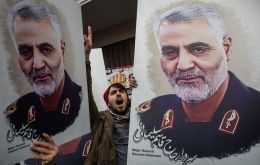
The United States told the United Nations on Wednesday that the killing of Iranian commander Qasem Soleimani last week was self-defense and vowed to take additional action “as necessary” in the Middle East to protect US personnel and interests.
-
Wednesday, January 8th 2020 - 10:51 UTC
Iran’s retaliation in Iraq against U.S. forces is a “Slap in face”: Supreme Leader
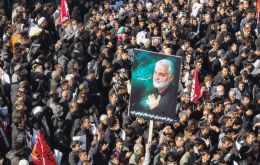
Hours after Iran’s attacks on two bases in Iraq that houses United States troops, Ayatollah Ali Khamenei addressed his nation considering the firing of 22 ballistic missiles as a “slap in the face” and that military action were “not sufficient” to end the American presence in the region. However, Iran’s authorities said they did “not seek escalation or war.”
-
Wednesday, December 18th 2019 - 09:58 UTC
Latin America as deadly as Middle East for journalists, RSF annual report
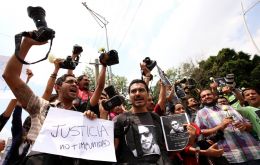
Forty-nine journalists were killed across the world in 2019, Reporters Without Borders said on Tuesday, the lowest death toll in 16 years.
-
Thursday, May 16th 2019 - 08:24 UTC
Oil prices edge up on the Iran situation, but inventories are still very high

Oil prices edged up on Thursday to extend gains into a third straight session, as tensions in the Middle East stoked fears of potential disruptions to supply. Brent crude futures were at US$72.04 a barrel at 0110 GMT, up 27 cents, or 0.4per cent, from their last close. Brent closed up 0.7per cent on Wednesday.
-
Tuesday, November 6th 2018 - 08:44 UTC
Oil market cautious as US punitive sanctions on Iran become effective
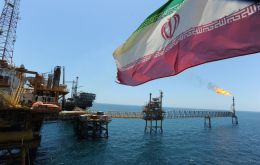
Oil prices were mixed on Monday after a steep five-day fall, as the United States formally imposed punitive sanctions on Iran but granted eight countries temporary waivers allowing them to keep buying oil from the Islamic Republic. The sanctions are part of U.S. President Donald Trump’s effort to curb Iran’s missile and nuclear programs and diminish its influence in the Middle East.
-
Thursday, October 18th 2018 - 09:04 UTC
US receives US$ 100m payment from Saudi Arabia, when Pompeo was in Riyadh
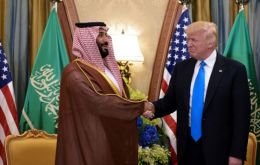
The United States received a payment of US$ 100 million from Saudi Arabia on Tuesday, the same day Secretary of State Mike Pompeo arrived in Riyadh to discuss the disappearance of journalist Jamal Khashoggi, a State Department official confirmed Wednesday amid global calls for answers in the case.
-
Monday, October 15th 2018 - 14:34 UTC
Key Naseed-Jaber, Quneitra crossings reopened as Syria reaches out to neighbours
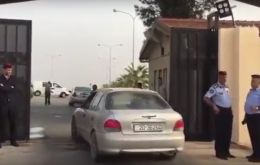
The strategic Naseeb crossing between Syria and Jordan on the Damascus-Amman international highway was reopened Monday, just one day after both countries agreed to it. The crossing had been closed since 2015 when the rebels took over that area in Syria's southern province of Daraa. Also Monday the only crossing point near the Syrian border town of Quneitra between Syria and the Golan Heights, under Israeli occupation since 1967, was reopened for United Nations observers, four years after closing due to the civil war, following a deal between Israel, Syria and the UN.
-
Thursday, October 11th 2018 - 08:54 UTC
International tourism industry remains robust with 6% increase in first six months of 2018

According to the World Tourism Organization (UNWTO)’s latest barometer, international tourist arrivals grew 6% in the first six months of 2018 after a record year of growth in 2017. All world regions enjoyed robust growth in tourist arrivals in January-June 2018. The increase was fueled by strong demand from major source markets, supported by an upswing in the global economy. It comes after record year-round growth of 7% in 2017.
-
Thursday, September 27th 2018 - 08:24 UTC
Iran tells Trump he is responsible for oil price increase: stop interfering in the Middle East

President Donald Trump should stop interfering in the Middle East if he wants the price of oil to stop rising, Iranian Oil Minister Bijan Zanganeh was quoted as saying on Wednesday.
